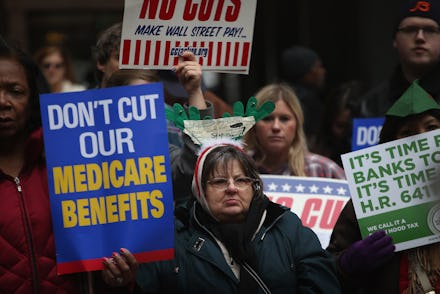Will Medicare eligibility change under Trump? Here's what we know.

With Donald Trump's inauguration just weeks away and the Republican Congress already sworn in, many Americans are likely wondering what, exactly, the new administration is going to mean for their access to health care. People may be concerned about possible changes to Medicare, the single-payer insurance program founded in the '60s for Americans aged 65 and over.
House Speaker Paul Ryan has often advocated replacing Medicare's public model with a system of providing vouchers to seniors to use at a health insurance provider of their choice, according to the Miami Herald.
This plan seems to fit with Ryan's general worldview. He believes that the government is less effective at providing services than the open market, therefore market-based solutions are preferable to government-provided programs. Similarly, many conservatives favor providing vouchers for parents to use at private schools over increasing funding for public education, believing that the private institutions will inevitably be better than the government schools.
With a Republican president about to take up residence at 1600 Pennsylvania Avenue, Ryan and his fellow Congressional Republicans may finally be able to carry out their Medicare privatization plans. Democratic leaders on Capitol Hill have vowed to fight against these changes, the Miami Herald noted.
During the presidential campaign, Trump bucked Republican tradition by promising not to cut Medicare or other social programs, including social security, as former presidential candidate and independent Sen. Bernie Sanders reminded him in public remarks this week. The Miami Herald notes, however, that since he won the presidency, Trump has not commented on his plans for Medicare.
Government moves slowly, so changes to Medicare likely wouldn't take effect right away — remember, the Affordable Care Act was signed in 2010 but wasn't fully implemented until 2014. Long-term, though, a Republican-dominated Congress and a President Trump could drastically change the way one of America’s most successful social programs works.